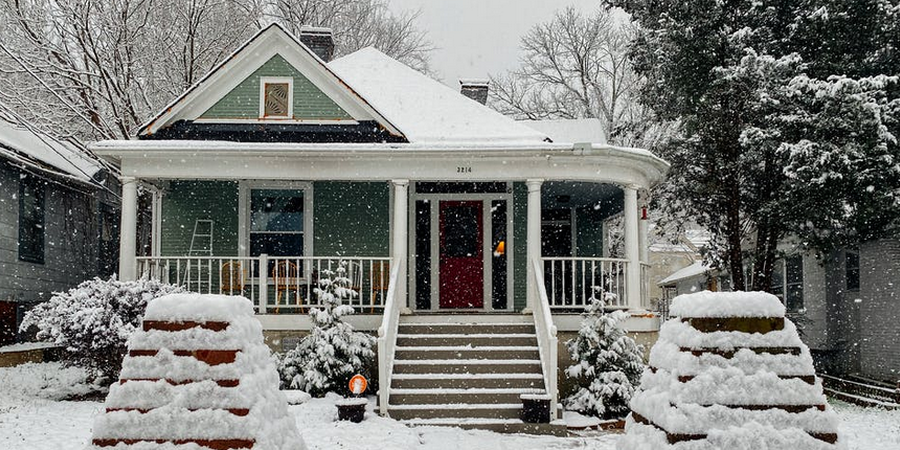Philadelphia, PA - The start of meteorological winter kicked off this week with light snow showers already making their way across northern Philadelphia. Grassy areas across Bucks County, the Lehigh Valley, and the Pocono Mountains are set to record around half an inch of snow.
How to Winterize Your Home
Overall, throughout winter 2021-2022, meteorologists are predicting most of the region to get the usual average 20-26 inches of snowfall. By taking care to prepare your home for the winter, you can better stay safe and warm, as well as avoid common and potentially expensive household problems typically caused by cold weather.
Clean your chimney and order firewood
There’s nothing better than relaxing next to a cosy fire during a cold winter’s evening in Philadelphia. Getting your fireplace professionally cleaned and inspected first will ensure it’s safe to use, as well as highlight maintenance problems that need addressing. Make sure you’ve also ordered your firewood and that any old firewood hasn’t gone rotten. It’s also smart to test your smoke and carbon monoxide detectors are working well. If the batteries are older than one year old, replace them. And, if you don’t yet have carbon monoxide detectors in your home, consider investing in some. Carbon monoxide is a bigger hazard during the winter months when the indoor heating and fires are continually blasting.
Get your household appliances serviced
It’s essential to have your household appliances serviced regularly to ensure they’re in good working condition and ready to handle any extra use they’ll be getting throughout the winter months. Refrigerator repair, in particular, is the most common appliance service in Philadelphia. While a new refrigerator will cost you anywhere between $1,000-$2,000, refrigerator repair in the region costs just around $251 on average. Additionally, you should also have your home’s heating and cooling systems serviced at least once a year to keep them functioning efficiently. During this inspection, your furnace and water heater’s ventilation will also be checked (this can be a common source of carbon monoxide).
Check your drainage and gutters
If the soil around your home’s foundation becomes saturated with water, problems can arise as it freezes and thaws throughout winter. So, check the soil around the foundation for any low spots and fill them in with extra soil to prevent water from pooling. It’s also important to check your rain gutter downspouts to ensure water is allowed to flow away from your home. Downspout extenders may be needed. Similarly, make sure your gutters are clean and free from debris. Water can overflow in blocked gutters, causing water to run down your home, and therefore exacerbating exterior deterioration. The home’s foundation can also deteriorate this way, as well as lead to water getting into the basement.
By getting your Philadelphia home ready for winter, you can keep yourself safe and avoid costly emergency repairs. Cleaning your chimney, servicing household appliances, and checking your drainage and gutters will help you avoid cold weather trouble.


